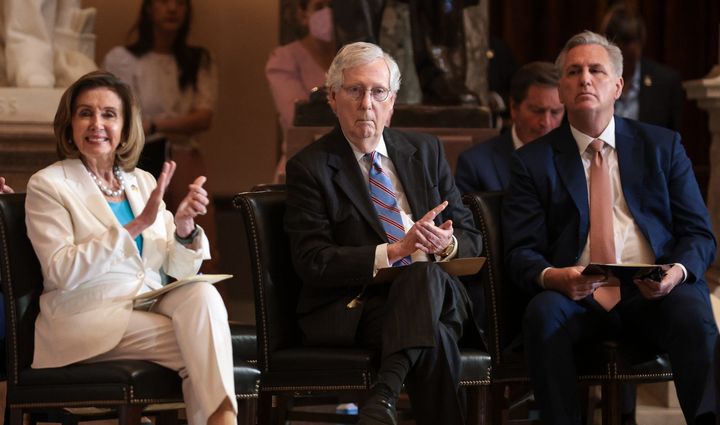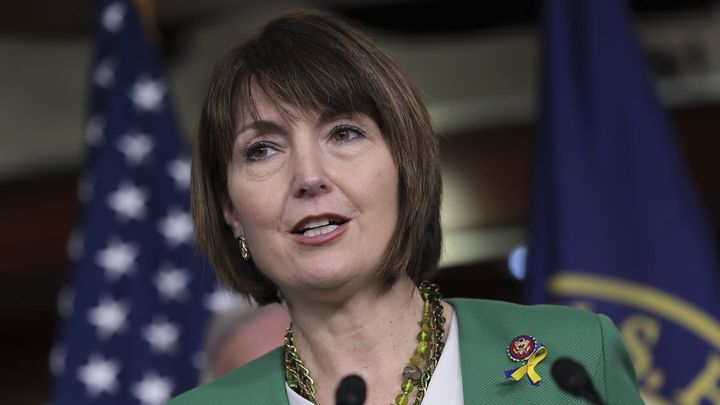Michigan is one of just two states where lawmakers and executive branch officials don’t have to file financial disclosures, keeping the public in the dark about who’s paying public officials and what kinds of financial conflicts of interest their legislators have while they do their work. In November, Michigan voters will have a chance to require public officials to start disclosing their personal financial information, but only if they also agree to amend the state’s term limit rules in a way that would allow hundreds of currently term-limited politicians to become eligible again to run for office.
Michigan Proposal 1, which is backed by a blend of big labor and business interests, is a ballot measure that would apply a flat 12-year limit for members of the state House of Representatives and Senate, and a requirement that legislators and executive officials annually disclose their incomes, assets, liabilities, gifts from lobbyists, agreements about future employment, payments made by others on their behalf, and more.
Currently, Michigan politicians are limited to three two-year House terms and two four-year Senate terms in their lifetimes. Though that potential cap of 14 years of service in both chambers is higher than the new proposed 12-year flat cap, most politicians do not serve in both chambers, so for many the net effect would be that they would be eligible for more time in office. An analysis by Michigan news company Gongwer of state House members going back to the mid ‘90s, when the current term limits were established, found that more than 300 current and former House members would become newly eligible to run for office again if the measure is approved. Gongwer wrote that the initiative would be “a boon to 30 current members of the House now running for what otherwise would be their third and final term.”
While term limits are generally popular among voters, lobbying groups may seek to weaken them as they could restrict their ability to build long-term relationships with lawmakers who could help them advance their legislative goals. Accordingly, many of the most powerful interests in Michigan politics have thrown their support behind the proposal. As of the most recent campaign finance disclosure, which covers donations through July, the top donor to the campaign in support of the ballot measure, at $75,000, is Rock Holdings, a Detroit company that owns major financial services brands like Rocket Mortgage and Nexsys Technologies. Several businesses and business-aligned advocacy groups have given $50,000 in support of the measure, including construction trade group MITA, a group called Michigan Energy First that has deep ties to utility company DTE Energy, and the PAC of the Michigan realtors association. The Michigan Chamber of Commerce has contributed $10,000 to back the measure and the PAC of the Michigan Bankers Association chipped in $500.
The campaign behind the measure, called Voters for Transparency and Term Limits, put forth the initial proposal in March, before it was tweaked by the legislature over the summer as they approved it for the ballot. Voters for Transparency and Term Limits has been endorsed by a mix of liberal organizations like Michigan People’s Campaign and AFL-CIO Michigan, as well as business associations like Insurance Alliance of Michigan, Michigan Manufacturers Association, and Business Leaders for Michigan, a nonprofit whose members include executives of companies including Ford, Amway, McKinsey & Company, and Blue Cross Blue Shield of Michigan. The group is co-chaired by former Michigan Chamber of Commerce CEO Rich Studley.
Voters for Transparency and Term Limits argues the term limits changes would help slow down the revolving door between the legislature and private interests that may seek to influence it. “When House members know they have only 6 years in that chamber, House seats often quickly become little more than stepping stones to the next position.” the campaign website states.
On the financial disclosure portion of the measure, the legislature weakened the language originally proposed by Voters for Transparency and Term Limits in a couple ways. The original proposal said that the legislature must implement the disclosure requirement in a way that is no less stringent than the requirements of annual financial disclosures for members of Congress, but that language was removed by the legislature. The original version also would have required public officials to disclose gifts, using a definition in state law since 1978 (“’Gift’ means a payment, advance, forbearance, or the rendering or deposit of money, services, or anything of value, the value of which exceeds $25.00…” with multiple exceptions). But the version on the ballot would only require disclosure of gifts from registered lobbyists, and only those that lobbyists themselves would already have to report under existing laws. In comments to the Michigan Campaign Finance Network, Voters for Transparency and Term Limits attorney Steve Liedel said that “unless the legislature broadens the enactment statute, there could be gifts from a non-registered entity that has no obligation to register that would not be reported.”



